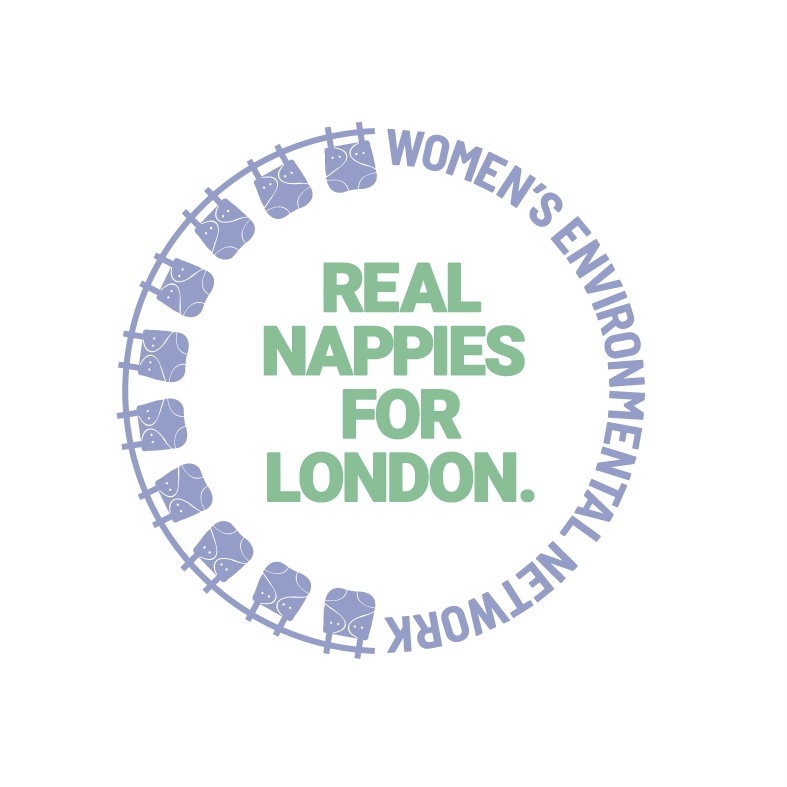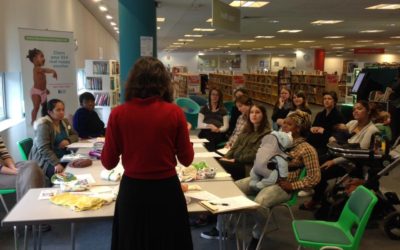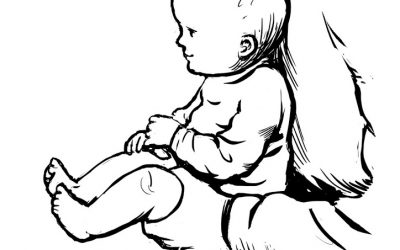POTTY TRAINING
How do I prepare for Toilet / Potty Training?
- Always talk about poo and pee in a positive way and encourage your child to praise themself.
- Talk about poo and pee. If your child wears reusable nappies talk about when the nappy is wet and when it is dry.
- Get a potty. Your child can sit on a potty from an early age. Encourage your child to sit on the potty once a day (if possible when you expect a poo) for a short time (a couple of minutes as a guide). It should be a relaxing time. Nothing needs to happen but if a poo or pee comes give praise to show this is what the potty is for. Note: don’t go overboard with the praise or it will be overwhelming for the child – although the prospect of you child coming out of nappies may be incredibly thrilling to you!
- Open door policy: let your child see you on the toilet.
- Visit the library and borrow different books about using the potty.
- Create a game with your child about helping a teddy or doll to use the potty, praising teddy or dolly when they do a pee or poo on the pot and keep their pants dry. Get your child to role play being the teddy or doll and repeat the steps to you.
- Visit a home where there are children of a similar age who use the loo and encourage your child to take an interest.
When Should I Toilet / Potty Train?
- If you do this preparation your child is highly likely to show an interest – letting you know a nappy is wet or poo is coming.
- The act of toilet training has been found to help the bladder develop so current thinking is that we do not wait until the child can stay dry for 2 hours.
- Your child may already be using the potty/toilet for poos.
How to start Toilet / Potty Training?
- Preparing for potty training, rather than introducing a potty and underwear suddenly, is not essential but very helpful.
- Choose a time when your child shows an interest in the potty, and you have time to spend together. Set aside a few days to be mostly at home and dedicate that time to helping your child develop this skill. Prepare your child for what’s going to happen – explain that they will stop wearing nappies during the day.
- Let your child know that from now on, they’ll only wear underwear during the day and use nappies only at night.
- Make it exciting. Take your child on a special shopping trip to buy some cotton underwear. If your child is going to use the toilet right away, get a step stool and a special seat.
- For the first few days, encourage them to sit on the potty or toilet every few hours, about half an hour after a drink. Make sure they know that they can also tell you if they need to go, and that you’ll accompany them when they want you too.
- Some toddlers won’t sit on the potty long enough to relax and let anything come out. Calmly encourage your child to sit for at least a minute or so. Stay with them and talk calmly or read a story. It’s best to start boys off with sitting too; they can learn to pee standing up later.
- When your toddler successfully uses the potty, give them lots of praise, but avoid going overboard, as they may find too much fuss overwhelming. Even if your child continues to have accidents, they will begin to understand that using the potty is an accomplishment.
- When you think your child is ready, stop reminding them to use the potty or toilet. There may be a few accidents, but your child needs to develop the ability to recognise when they need to go on their own.
What do we do when we go out?
Once this process has started be consistent. Stick with it and don’t go back to nappies. When you go out you may need a portable toilet so they can use it. Choose to spend time at a park with toddler toilets, such as Coram’s Fields, or a drop-in with small toilets so that your child will see ‘big’ boys and ‘big’ girls going to the loo.
What about night training?
Most children become dry at night within 6 months or so of becoming dry in the day but up to 20% will still wet at age 5 years. If so parents need to speak with their school nurse or GP regarding appropriate treatment to help their child become dry.
What if there is no progress?
If you feel that your child is not ready after all, go back to using nappies and try again when your child shows an interest. This process takes cooperation, and your child should be an active participant. Be consistent in whatever seems right for your child.
What about children with special needs?
Having special needs does not mean that your child cannot become toilet trained. The organisations: Eric, Contact, as well as Bladder and Bowel UK, all provide impartial advice and information regarding toilet training for children and young people.
Resources:
ERIC – https://eric.org.uk/ or call: 0808 169 9949 (Mon – Thurs, 10am – 2pm).
The charity Contact has more information on potty training for children living with a disability.
Bladder and Bowel UK – https://www.bbuk.org.uk/ or contact: 0161 214 4591 | bbuk@disabledliving.co.uk
In March 2011, we carried out an online survey into potty training. It revealed that only a tiny percentage of parents are given guidance on potty training from Health Visitors. It also showed that children that wear disposable potty training pants tend to take much longer to transition to pants than those that don’t. To read more: download the report (pdf).
Baby-Led Potty Training
Baby-led Potty Training, also know as Elimination Communication, or Natural Infant Hygiene is the natural way to care for your baby’s toileting needs, and a growing number of parents are returning to the traditional practice of offering the baby toilet (or potty) opportunities.
If this approach is used, there is still a need for toilet training, as before 8 months the parent is simply ‘catching’. The child still needs the opportunity to learns about taking themself to the potty/toilet.
When a baby is just a few months, many parents recognise when their baby is going to poo their nappy and prepare themselves for the imminent nappy change. But very few spring into action, hold their child over the toilet and avoid the clean up operation. Wet nappies are nicer to deal with than poo ones! Baby-led Potty Training is non-coercive and focuses on keeping the baby clean and dry and aware of their bodily functions. It uses and maintains their natural instinct not to soil themselves.
Variations of this approach are used internationally and are the norm in many countries. Whilst using Baby-led Potty Training many people still use training pants or nappies as ‘back-up’ (rather than the only way to deal with body waste). Contrary to common misconceptions, using this method does not need to be stressful, messy or overly labour-intensive. It can also be done full or part-time to suit family circumstances.
What is Baby-Led Potty Training?
Julie Rose is a mum of one living in Stoke Newington, she volunteered at the Hackney Real Nappy Network nappuccino sessions to raise awareness about Baby-Led Potty Training – a technique used to drastically reduce nappy use and something she learnt through a friend who practiced BLPT with her son.
What if Health Visitors modelled ‘catching’ in Baby Clinics?
We know that babies tend to pee and poo when the nappy is taken off, right? It frequently happens when baby is weighed at the baby clinic. Parent is embarrassed, mess has to be cleaned up?Why not have a small pottry or even a yoghurt pot or...
Natural Infant Hygiene Factfile
Written by Rachel Richardson
Elimination Communication: Nappyfree Newborn
Mum Blogger, Lulastic talks about doing EC with her baby.
Continence Advice for Older Children
This is not our area of expertise but these websites offer excellent information on dealing with bedwetting, day-time wetting, constipation and soiling:
- www.eric.org.uk
- Bladder & Bowel UK is also a useful resource for helping early years settings and schools manage continence. They also have bladder and bowel information for Children and Young People. Helpline: 0161 214 4591.


